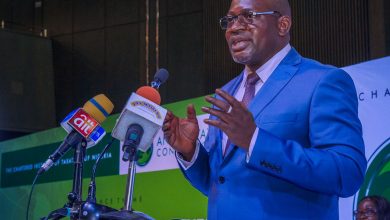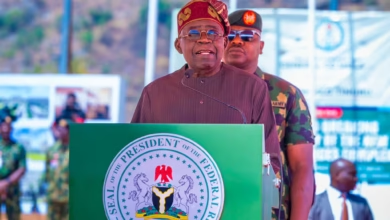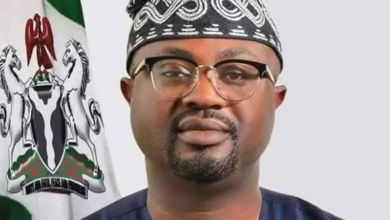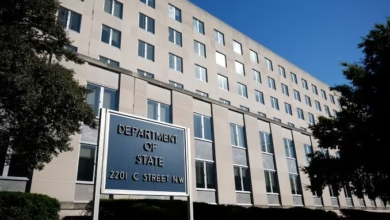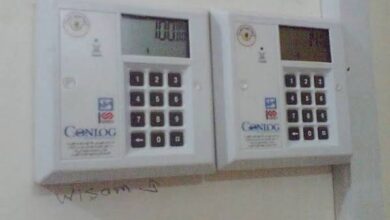BusinessNewsPress release
Group calls our Guardian Reporter over Fake Scare of Foreign Investors

The Nigerian Economic Policy Review Group (NEPRG) has called out a Guardian newspaper reporter for a misleading report on the foreign investment in Nigeria.
The group, in a statement made available to our correspondent noted that the Guardian report, which was published on June 10, was “a mishmash of ignorance, wrong figures, and weak analysis not to talk about inherent contradiction.”
NEPRG further said the reporter, Helen Oji, tried to downplay the inflow of foreign investment into the country and so give the impression that the Nigerian investment climate is bad.
“A little research would have revealed that in addition to foreign direct investment most of the direct investment taking place in Nigeria is in the form of expansion of existing businesses and domestic direct investments,” the group noted.
Giving examples of recent foreign investments into the country, the group added, “Shell has revealed that it will invest over $15 billion in the oil and gas sector over the next five years; Sonoma Fabricon, a Chinese company is building a fibre cement board manufacturing plant in Abuja; Over $178 million of investment came into start-ups in Nigeria in 2018 alone; NNPC has invested in and is to open a new large LPG storage and dispensing plant in Benin before the end of the year; Microsoft is investing $100 million to establish an African Development Centre in Lagos; the Federal Government is also investing in roads and bridges, rail and power infrastructure all which all counts as investment in the domestic economy.”
The full statement by NEPRG is produced below.
Re: Foreign investors pull out 1.7 trillion over insecurity’: Guardian missed the point
I refer to your article entitled ‘Foreign investors pull out 1.7 trillion over insecurity’, published in the Guardian Newspapers on June 10, 2019. This article is not worthy of being on the front page in the Guardian, at least of the time of late Stanley Macebuh and his colleagues. It is a mishmash of ignorance, wrong figures, and weak analysis not to talk about inherent contradictions. It makes one wonder about the motives of the writer.
Let me first of all address the ignorance of general investment issues and the factors influencing portfolio investments. To start with, it is highly unlikely that foreign portfolio investors would cite insecurity as the reason for capital outflows from Nigeria. The simple reason is that most portfolio investors do not reside in Nigeria and operate out of their offices in New York, Boston, London, Frankfurt, amongst other places. They have little or no physical presence in Nigeria. Even so, given the ease of communications these days, one is hard put to understand why your correspondent did not consult, mention or quote one single foreign portfolio investor or firm in an article that is about them.
Equally important, it is wrong-headed to give the impression that the Nigerian investment climate is bad. A little research would have revealed that in addition to foreign direct investment most of the direct investment taking place in Nigeria is in the form of expansion of existing businesses and domestic direct investments. Some examples will suffice:
• Shell has revealed that it will invest over $15 billion in the oil and gas sector over the next five years.
• Sonoma Fabricon, a Chinese company is building a fibre cement board manufacturing plant in Abuja
• Over $178 million of investment came into start-ups in Nigeria in 2018 alone
• NNPC has invested in and is to open a new large LPG storage and dispensing plant in Benin before the end of the year
• Microsoft is investing $100 million to establish an African Development Centre in Lagos
• The Federal Government is also investing in roads and bridges, rail and power infrastructure all which all counts as investment in the domestic economy.
• Ecobank Transnational has injected $64 million into Ecobank Nigeria and the
• Stallion Group has inaugurated a 140,000 tonnes mill to expand its rice milling capacity.
Putting the domestic environment aside for a moment, the article ignores the general trend in all the emerging markets in 2018 by taking no account of profit taking in such markets including Nigeria as well as reversal of flows from such economies due to the increases in the US Federal Reserve rate. It is also pertinent to point out that even if overall capital inflows reduced in the equity sector they did not reduce overall. Indeed, total capital imports into Nigeria in 2018 was $16.8bn which was well over the $12.2bn imported in 2017. Of this amount, portfolio investments accounted for $11.8bn and consisted of equities, bonds and money market instruments. Surely, if foreign portfolio investors perceive that they will get higher returns from bond or money markets they will place their money in these markets. A cursory glance at the relevant figures confirms this as over 71% of foreign portfolio investments into Nigeria in 2018 went into money market instruments.
It is also of some concern that the article makes selective use of statistics and a conveniently ignores the time period when the stock market was doing particularly well. For instance, if we take the period 2017 to 2018, inflows were N1.35 trillion as compared to outflows of N1.07 trillion. Moreover, it is misleading to use the data of the period 2007 to 2010, which was one of high speculation and institutional bad behaviour in which a lot of ordinary citizens got burnt.
Your correspondent was quite frankly rather sloppy even in the use of publicly available data. For instance, the reference to the figures for the All Share Index in May 2019 was wrong it was 38,606.41 as at 30 May 2019 and not 31,254.19 as reported. Equally careless was the misreporting of market capitalisation figures as being in trillions of naira rather than in billions of naira.
Now to the contradictions. After lamenting the supposed flight of foreign equity capital from Nigeria, the article then goes on to quote operators who think that it might not be a bad thing as there was over-dependence on foreign portfolio investments to the detriment of domestic equity investors. Please make your mind up!
Overall, there is something wrong about giving such prominence to such a shoddy piece of business news and conveys the impression that the Guardian is in the league of those who carry false narratives about Nigeria for unfathomable political reasons. Please return to your heritage of seriousness.
Dickson Uwala,
Executive Secretary,
The Nigerian Economic Policy Review Group (NEPRG)

